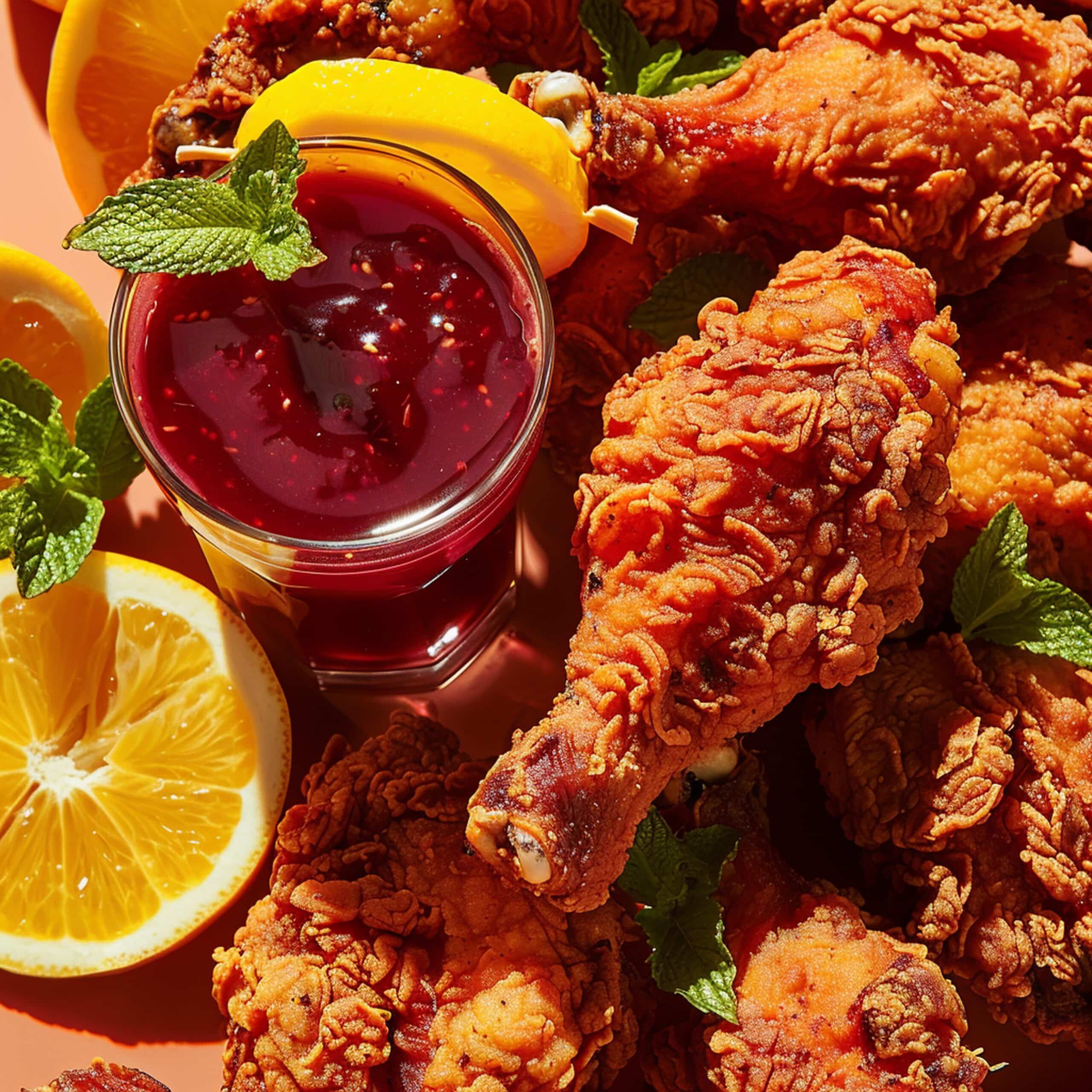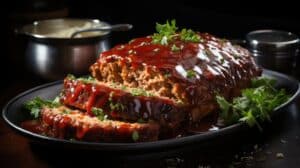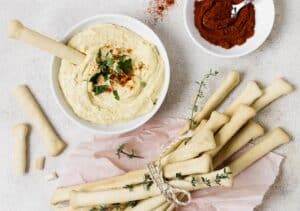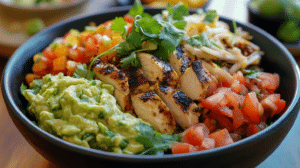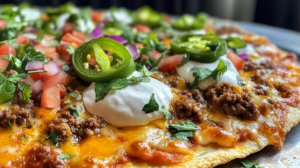Chicken is a versatile and popular protein, but achieving perfectly tender and juicy chicken can sometimes be challenging. Overcooked chicken can become dry and tough, while undercooked chicken is unsafe to eat. Whether you’re preparing a simple weeknight dinner or cooking for a special occasion, knowing how to make chicken tender and juicy is essential. This guide will walk you through various techniques and tips to ensure your chicken is always perfectly cooked.
Introduction to Tender and Juicy Chicken
The key to delicious chicken lies in its texture. Tender and juicy chicken not only tastes better but also enhances the overall dining experience. However, achieving this perfect balance requires understanding how chicken behaves during cooking and applying the right methods to retain moisture and tenderness.
Cooking chicken can sometimes be tricky due to its tendency to dry out, especially when overcooked. To avoid this, it’s crucial to know the best techniques for maintaining moisture while ensuring the chicken is fully cooked. According to the MasterClass guide on tenderizing chicken, methods like brining, marinating, and proper cooking techniques play a significant role in achieving the desired texture.
Moreover, choosing the right cooking method is equally important. For instance, using low and slow cooking techniques like braising or the sous vide method can help lock in moisture, making your chicken tender and juicy. Let’s explore these methods in more detail.
For those interested in experimenting with different recipes, you might want to try this Chicken and Yellow Rice Recipe, which pairs beautifully with tender and juicy chicken.
Understanding Chicken Texture and Why It Matters
Protein Structure
The texture of chicken is primarily determined by its protein structure. During cooking, heat causes the proteins in chicken to denature and coagulate, which can either make the meat tender or tough, depending on the cooking method and time. Overcooking leads to excessive tightening of these proteins, squeezing out moisture and resulting in dry, tough chicken.
Moisture Retention
Moisture is key to juicy chicken. Keeping the natural juices inside the meat is essential for both flavor and tenderness. This is why techniques like brining, which involves soaking the chicken in a saltwater solution, are effective. The salt helps to break down the muscle fibers, allowing the chicken to absorb and retain more moisture during cooking.
Key Methods to Make Chicken More Tender
Brining
Brining is one of the most effective methods for ensuring chicken stays tender and juicy. By soaking the chicken in a solution of water, salt, and sometimes sugar or other seasonings, the meat absorbs the liquid, which helps it retain moisture during cooking.
- How to Brine: Dissolve 1/4 cup of salt in 4 cups of water. Submerge the chicken in the solution and refrigerate for at least 30 minutes, but no more than 4 hours.
- Benefits: Brining not only adds moisture but also enhances the flavor of the chicken.
For a great brine recipe, you can explore this Chicken Brine Recipe on Vicky’s Recipes.
Marinating
Marinating chicken in an acidic mixture, such as lemon juice, yogurt, or vinegar, can also help tenderize the meat. The acid in the marinade breaks down the protein fibers, making the chicken more tender.
- How to Marinate: Combine your preferred marinade ingredients in a bowl. Submerge the chicken and refrigerate for at least 1 hour, but no more than 24 hours.
- Benefits: Adds both flavor and tenderness to the chicken, depending on the ingredients used.
Pounding
Pounding chicken with a meat mallet breaks down the muscle fibers, resulting in a more tender texture. This method is especially useful for chicken breasts, which can be thicker on one end.
- How to Pound: Place the chicken between two pieces of plastic wrap or in a resealable bag. Gently pound with a meat mallet until the chicken is an even thickness.
- Benefits: Ensures even cooking and tender meat.
Cooking Techniques for Juicy Chicken
Low and Slow Cooking
Low and slow cooking methods, such as baking or braising, are ideal for making chicken tender and juicy. These methods use lower temperatures over longer periods, which helps to break down the connective tissues without drying out the meat.
- Braising: Cook the chicken in a small amount of liquid at low heat for an extended period.
- Baking: Bake chicken at a lower temperature, such as 325°F (163°C), to slowly cook the meat without losing moisture.
Sous Vide
Sous vide cooking involves vacuum-sealing the chicken and cooking it in a temperature-controlled water bath. This method ensures that the chicken is cooked evenly and retains its moisture.
- How to Sous Vide: Preheat the water bath to the desired temperature, usually around 140°F to 165°F (60°C to 74°C). Cook the chicken for 1 to 4 hours, depending on the thickness.
- Benefits: The chicken will come out perfectly tender and juicy every time.
Grilling and Searing
Grilling and searing are high-heat methods that can quickly cook the exterior of the chicken while sealing in juices.
- Grilling: Preheat the grill to medium-high heat. Cook the chicken for 6-8 minutes per side, depending on thickness.
- Searing: Sear chicken in a hot pan with a little oil until a crust forms, then finish cooking in the oven if needed.
- Tip: Always rest the chicken after cooking to allow the juices to redistribute.
For more insights on perfecting these cooking techniques, you can refer to the Kitchn guide on cooking moist and tender chicken breasts.
Using Ingredients to Enhance Tenderness
Butter and Oil
Adding fats like butter or oil during cooking can help keep chicken moist by creating a barrier that locks in the natural juices.
- Tip: Baste the chicken with melted butter or oil during cooking for added flavor and moisture.
Broth and Stock
Cooking chicken in broth or stock not only adds flavor but also helps to keep the meat juicy.
- Tip: Use broth or stock as the cooking liquid for braising or in a slow cooker to enhance the chicken’s moisture content.
Using Vegetables
Cooking chicken with vegetables can add moisture to the dish. Vegetables release their juices as they cook, which helps to keep the chicken tender.
- Tip: Place the chicken on a bed of onions, carrots, and celery in the oven or slow cooker for added flavor and moisture.
For more chicken cooking tips and recipes, check out this Chicken Bites Recipe that emphasizes keeping chicken tender and juicy.
Advanced Techniques for Maximum Tenderness
Velveting
Velveting is a Chinese technique that involves coating chicken in a mixture of cornstarch and egg whites before cooking. This method creates a protective layer that keeps the chicken tender during high-heat cooking.
- How to Velvet: Mix 1 egg white with 1 tablespoon of cornstarch. Coat the chicken pieces and let them sit for 30 minutes before cooking.
- Benefits: Results in extremely tender chicken, especially when stir-frying.
Basting
Basting involves regularly applying liquid, such as melted butter or pan juices, to the chicken during cooking. This helps to maintain moisture and adds flavor.
- How to Baste: Use a spoon or basting brush to coat the chicken with the cooking juices every 15 minutes while roasting.
- Benefits: Keeps the chicken moist and adds a rich, savory flavor.
Resting the Chicken
After cooking, it’s important to let the chicken rest for several minutes before cutting into it. This allows the juices to redistribute throughout the meat, making it juicier.
- How to Rest: Cover the chicken loosely with foil and let it rest for 5-10 minutes.
- Benefits: Helps retain the juices and makes the chicken more tender.
Common Mistakes and How to Avoid Them
Overcooking
Overcooking is one of the most common causes of dry, tough chicken. To avoid this, use a meat thermometer to check for doneness. Chicken is safe to eat when it reaches an internal temperature of 165°F (74°C).
Incorrect Slicing
Always slice chicken against the grain to maintain its tenderness. Slicing with the grain can result in a tougher texture.
Inadequate Seasoning
Proper seasoning enhances the flavor and moisture of the chicken. Don’t be afraid to use a generous amount of salt, pepper, and other seasonings before cooking.
For more detailed tips on avoiding common mistakes, check out this guide on Cooking Juicy Chicken Breasts and Tenders.
Serving Suggestions for Tender and Juicy Chicken
Pairing with Sauces
Sauces can complement the tenderness of chicken by adding moisture and flavor. Consider pairing your chicken with sauces like creamy garlic butter, honey mustard, or BBQ sauce.
Side Dishes
Serve tender and juicy chicken with sides that complement its flavor and texture, such as mashed potatoes, roasted vegetables, or a fresh salad.
Storing and Reheating
To retain the tenderness of leftover chicken, store it in an airtight container in the refrigerator. Reheat gently in the oven or microwave with a bit of broth to prevent drying out.
Frequently Asked Questions (FAQ)
How long should I brine chicken for maximum tenderness?
Brine chicken for at least 30 minutes and up to 4 hours, depending on the size of the pieces. Over-brining can make the meat too salty.
Can I use yogurt instead of lemon juice for marinating chicken?
Yes, yogurt is an excellent alternative to lemon juice. Its acidity helps tenderize the chicken, while its creamy texture adds moisture.
What is the best temperature for slow-cooking chicken?
Slow-cook chicken at a low temperature, typically around 200°F to 250°F (93°C to 121°C), for several hours to ensure tenderness.
How do I keep chicken tender when grilling?
To keep chicken tender when grilling, marinate it beforehand, cook over medium heat, and avoid overcooking. Let the chicken rest after grilling to retain moisture.
Is there a quick way to tenderize chicken without marinating?
Pounding chicken with a meat mallet is a quick way to tenderize it without marinating. This method breaks down the muscle fibers, making the chicken more tender.
Conclusion and Final Thoughts
Achieving tender and juicy chicken is possible with the right techniques and a bit of attention to detail. Whether you choose to brine, marinate, or use low and slow cooking methods, the key is to retain moisture and enhance the chicken’s natural flavors. Don’t be afraid to experiment with different methods and recipes to find what works best for you.
With these tips, you’re well on your way to mastering the art of cooking chicken that’s tender, juicy, and full of flavor. Remember, practice makes perfect, so keep experimenting with different techniques until you find the perfect approach for your kitchen.

